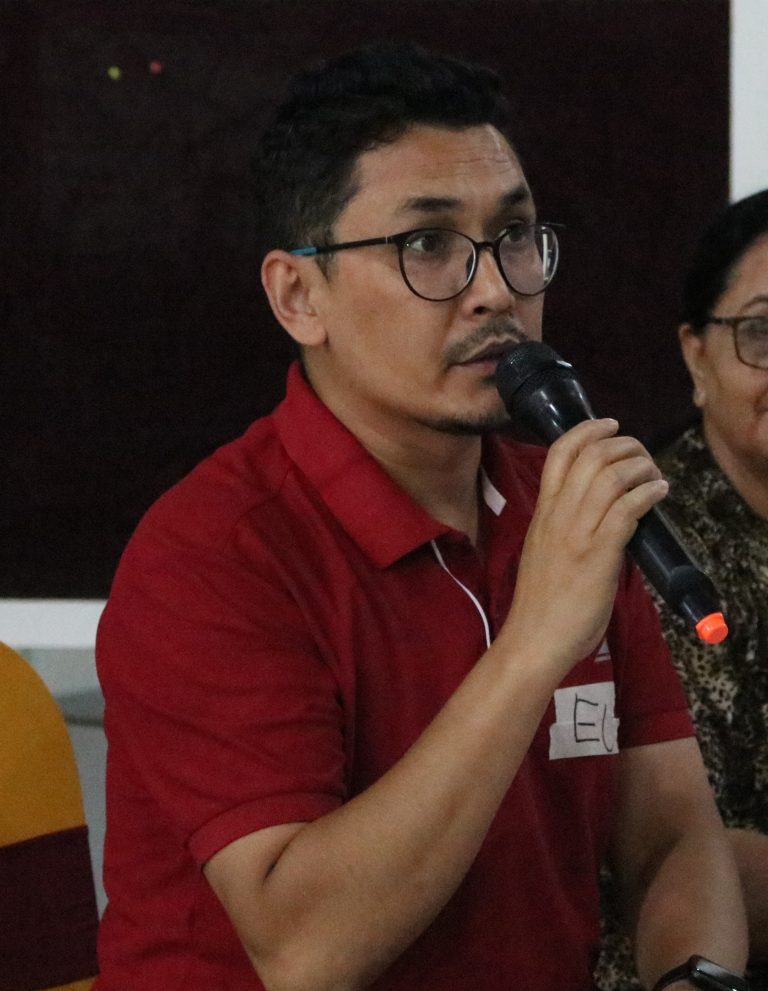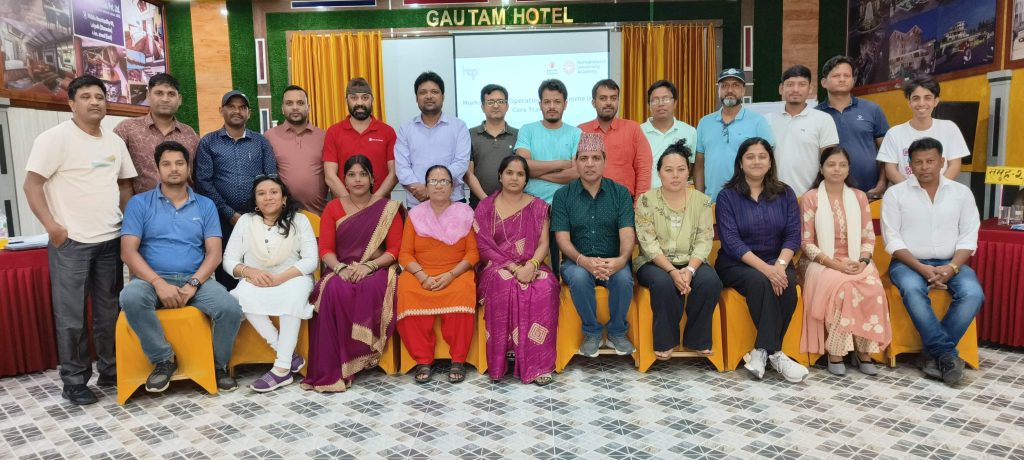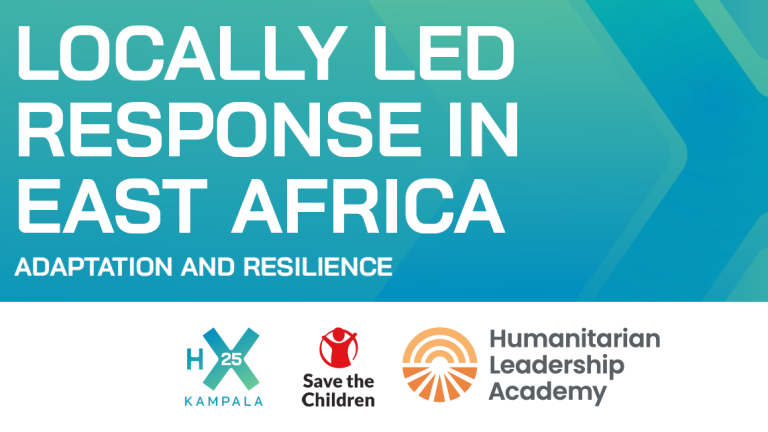
In this feature, we spotlight a capacity strengthening initiative of the HLA Asia Regional Centre in Nepal: the Humanitarian Operations Programme (HOP) Core training which is preparing front line humanitarians for responding to climate-induced emergencies and in turn strengthening community resilience.
Nepal has long been recognised as a high-risk area for climate-induced crises and humanitarian emergencies. To help address these vulnerabilities, the HLA Asia Pacific Regional Centre is collaborating with Save the Children Nepal Country Office to bolster their efforts to prioritise capacity strengthening initiatives to enhance community-level resilience, particularly with local civil society organisations.
HOP Core Nepal training in 2024
2
training locations
4
day training sessions
50
participants in total
The training content was exactly what I was looking for; it’s refreshing and directly useful for my work.

A cornerstone of these efforts is the Humanitarian Operations Programme (HOP) Core training. The HOP Core training aims to equip humanitarian responders with the skills and knowledge necessary for effective emergency management.
Save the Children Nepal Country Office’s commitment to localising humanitarian response is reflected in its ‘Partner Graduation Model,’ which focuses on supporting national and local partners with sustainable leadership and resource capabilities. This places local civil society organisations and actors at the centre of all their activities to achieve breakthroughs and results at scale.
This year’s two-phased HLA HOP Core training in Nepal – held between 28-31 May in Surkhet (Western Province) and 6-9 August in Bardibas (Eastern Province) – is part of this broader strategy to strengthen the resilience of frontline responders.
Contextualised learning for Nepal
The training was designed with a blended approach – featuring both classroom sessions and hands-on simulations, allowing participants to practice real-world scenarios using context-specific case studies, such as flood responses.
The curriculum was customised based on a Training Needs Assessment (TNA), ensuring that participants’ diverse backgrounds were addressed, with modules tackling vital areas such as humanitarian principles, wellbeing in emergencies, needs assessment and accountability, gender equality in crisis response, proposal writing, and simulations for disaster preparedness.
Asad Zia Iqbal, HLA Asia Pacific Regional Centre’s Humanitarian Capacity Building Manager, and the lead trainer had previously trained the HOP Core Nepal trainers, and also provided technical support to the workshops.
Asad commends the dedication and expertise of the HOP Core-trained facilitators, whose skills were instrumental in delivering impactful training sessions, remarking: “The facilitators’ commitment, knowledge, and adaptability truly made a difference, creating an environment that was both impactful and inspiring for our participants.”
He also highlights the emphasis on the practical elements of the training, notably the simulations which enable participants to engage in realistic scenarios that mimic actual emergency situations: “These simulations foster critical thinking, teamwork, and decision-making skills, preparing participants to effectively manage crises in their respective roles. This combination of learning sessions and simulations ensures a dynamic and immersive training experience, equipping participants with the necessary tools to lead and respond effectively in emergency situations.”
Inclusive and collaborative approach
The training marked the first time participants from Save the Children and local partner organisations came together for shared capacity strengthening. 50 attendees, including 16 women, ranged from field staff to board members of partner organisations.
The training was led by in-country facilitators who share the view that the engagement of the diverse participants created a stimulating and productive learning environment.
Trainer Ratna Raj Ojha, Head of Programme Operations, Save the Children Nepal Surkhet Field Office, reflected:
“The diverse backgrounds of the participants made the training experience richer. Tailoring content to their needs and simplifying complex topics ensured better engagement and understanding.”
Sharing this view is Rabin Dahal, Shock Responsive Social Protection Training Coordinator, Save the Children Nepal, who remarked:
“It was a privilege to share the Humanitarian Operations and Programme Skills with colleagues. The enthusiasm and learning attitude of participants truly made this training impactful. It was encouraging to see their commitment to applying the knowledge gained to future crisis responses.”
Strengthening local leadership for effective crisis management

One unique aspect of this training was the inclusion of board members from partner organisations, focusing on enhancing their strategic oversight during emergencies. By strengthening the knowledge these leaders with emergency management principles, the programme strengthens organisational resilience, ensuring swift and informed decision-making in times of crisis.
HOP training is very effective and relevant to the staff and organisation those what to make career in Humanitarian Response and organisational growth in humanitarian sector.
The training has provided us with insights on how effectively we can respond to a humanitarian situation. HOP is a well-facilitated training course with very useful and context relevant contents.

As the HLA representative, it is good to see how Nepal Team has simplified and well customised the contents to make them context relevant, maintaining the essence of the training. The training was well received and widely appreciated by the participants. Seeing how the Nepal team adapted the HOP content to fit the local context was impressive. This training truly reinforced our commitment to localisation.
Looking ahead: building on successes

As a next step, Save the Children Nepal plans to conduct additional training on ‘Emergency Preparedness and Response Planning’ (EPRP) for partners to further strengthen their crisis management capabilities.
The positive feedback received from participants and trainers alike underscores the training’s immediate impact on enhancing local humanitarian response capabilities.
The successful execution of the HOP Core training in Nepal demonstrates the power of collaborative, context-specific capacity-strengthening initiatives. By equipping local actors with the tools and knowledge to respond effectively, Save the Children and HLA are contributing to a more resilient and prepared humanitarian landscape in Nepal.
I would like to thank HLA for developing such practical training and looking forward to other courses to capacitate the humanitarians for lifesaving interventions addressing the needs of affected people.
The HLA Asia Regional Centre would like to congratulate all participants and extend thanks to the facilitation team, Save the Children Nepal Country Office as well as the Humanitarian Director Asia for supporting HOP Core training in Surkhet under Humanitarian Fund.


